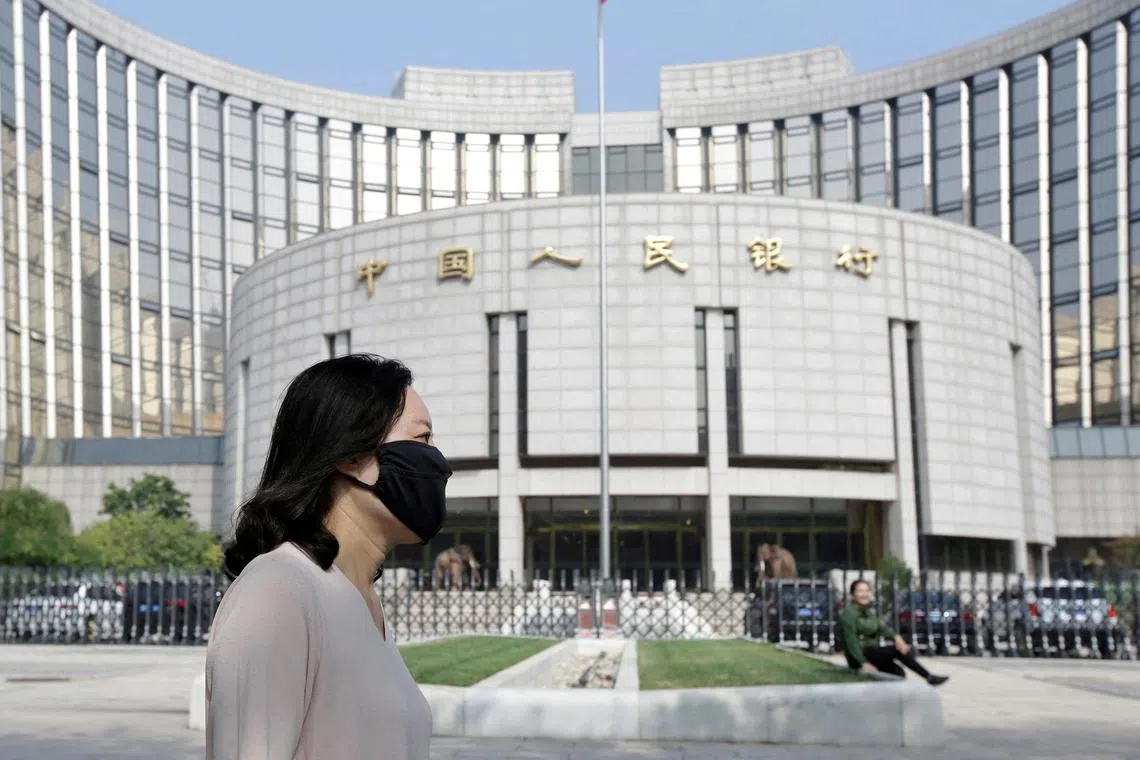China mulls over $188 billion of new funds to aid housing market
Sign up now: Get ST's newsletters delivered to your inbox

China's central bank would inject funds in phases through policy banks, with the money ultimately trickling down to households for home purchases, sources said.
PHOTO: REUTERS
Follow topic:
SHANGHAI – China plans to provide at least one trillion yuan (S$188 billion) of low-cost financing to the nation’s urban village renovation and affordable housing programmes in its latest effort to shore up the struggling property market, according to people familiar with the matter.
The People’s Bank of China (PBOC) would inject funds in phases through policy banks, with the money ultimately trickling down to households for home purchases, the people said.
Officials are considering options including the so-called Pledged Supplemental Lending (PSL) and special loans, the people said, adding that the government may take the first step as soon as November.
The plan, part of a new initiative by Vice-Premier He Lifeng, would mark a major step-up in the authorities’ efforts to put a floor under the biggest property downturn in decades, which has weighed on economic growth and consumer confidence.
Market concerns have mounted over the financial health of the nation’s largest surviving developers after record defaults in the industry.
The outstanding amount of funds lent through the PSL programme stood at 2.9 trillion yuan as at October.
A net injection of one trillion yuan would vault the total past the previous record in 2019.
The final amount of new funding is subject to change, the people said.
The PBOC did not immediately respond to a request for comment.
The onshore renminbi rebounded on the report, paring all of the day’s declines to 7.288 per US dollar.
The yield on the benchmark 10-year government bond rose 1.75 basis points to 2.6625 per cent, heading for the biggest increase in three weeks.
Dubbed by some as “helicopter money”, PSL allows the central bank to provide low-cost funds through policy and commercial lenders to the developers of the shantytown renovation projects.
Developers then use the money to buy land from local governments, which in turn give cash subsidies to households whose old homes were demolished so that they can purchase newly built or existing apartments, driving up demand.
“This is not to spur growth but rather deliver a more balanced development for the longer term,” said Jones Lang LaSalle chief economist for Greater China Bruce Pang.
He expects the funding to drive private investment in the sectors and lead to more than 10 trillion yuan in overall direct investment.
State-owned developers such as China Resources Land were among the biggest beneficiaries from the previous expansion of affordable housing projects.
The PSL programme is a controversial tool. It was first deployed in 2014 to reverse a property market downturn, but was heavily criticised later for inflating the real estate bubble in lower-tier cities.
The central bank largely stopped providing new PSL funds in 2019 as the shantytown project wrapped up.
It was relaunched briefly in 2022 to help the policy banks – which are less profit-driven than state lenders – provide financing for infrastructure development.
The latest plan comes after Beijing announced an unconventional fiscal stimulus in October, including raising the budget deficit with the issuance of an additional 1 trillion yuan of sovereign bonds.
The world’s second-largest economy is stil l on a bumpy recovery path,
Official data to be released on Wednesday is expected to show economic momentum faltered in October, even though headline numbers will likely look good relative to 2022. BLOOMBERG

